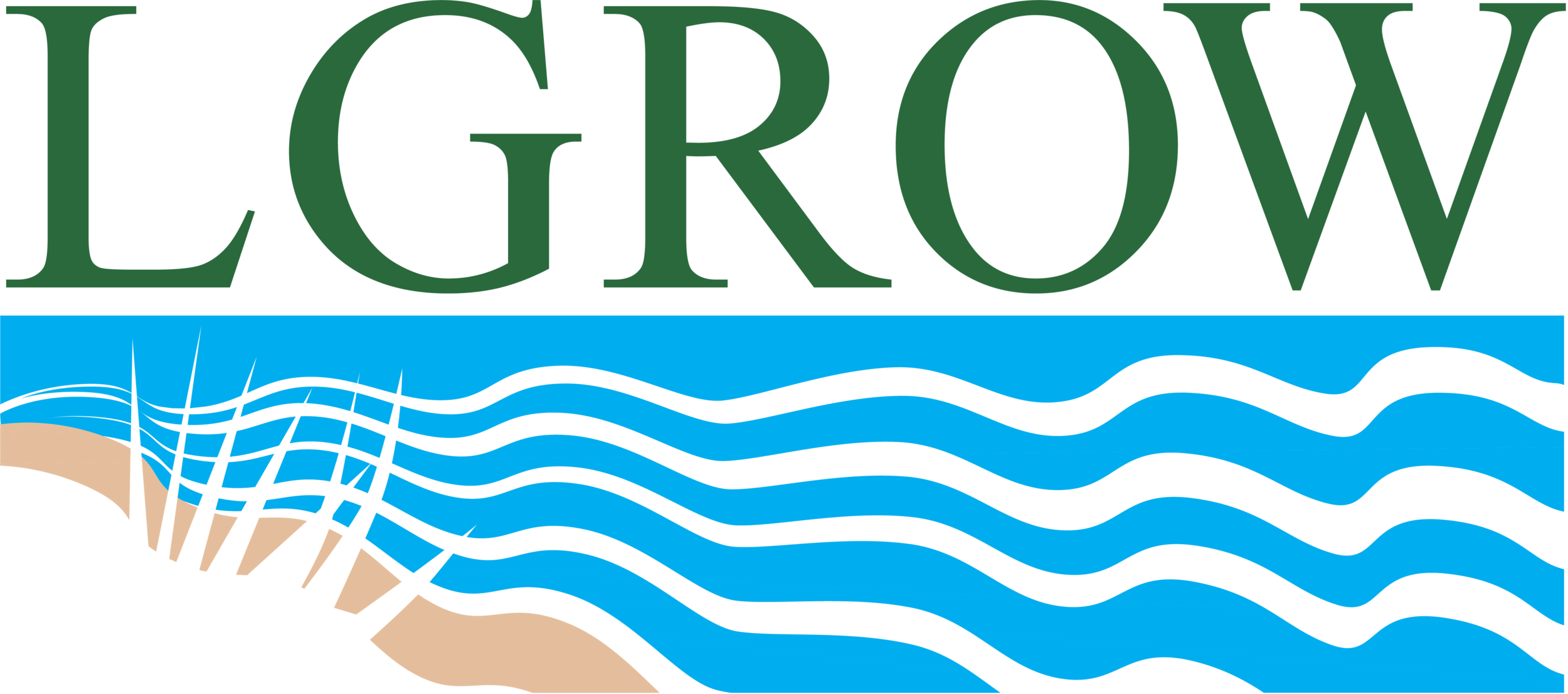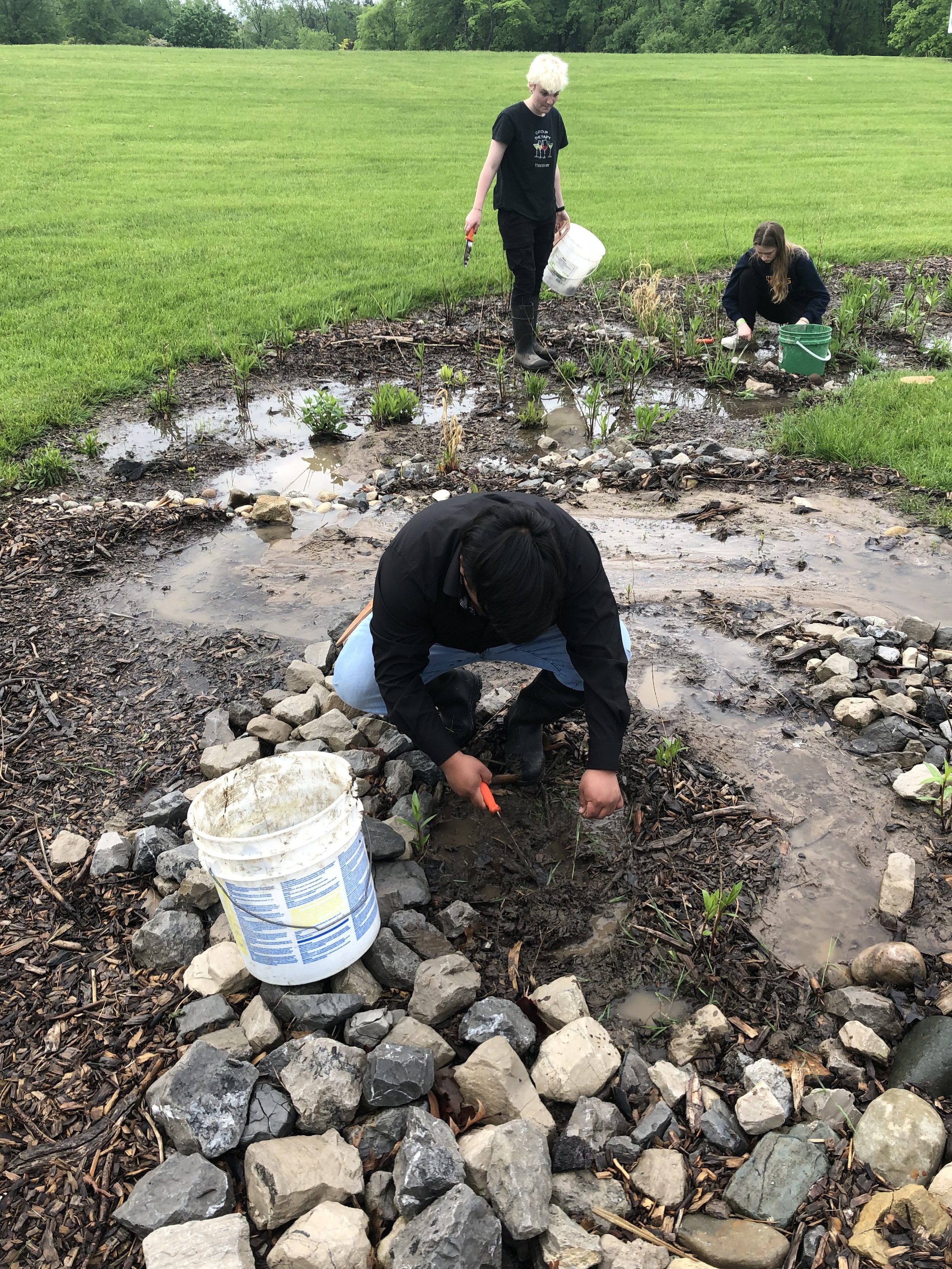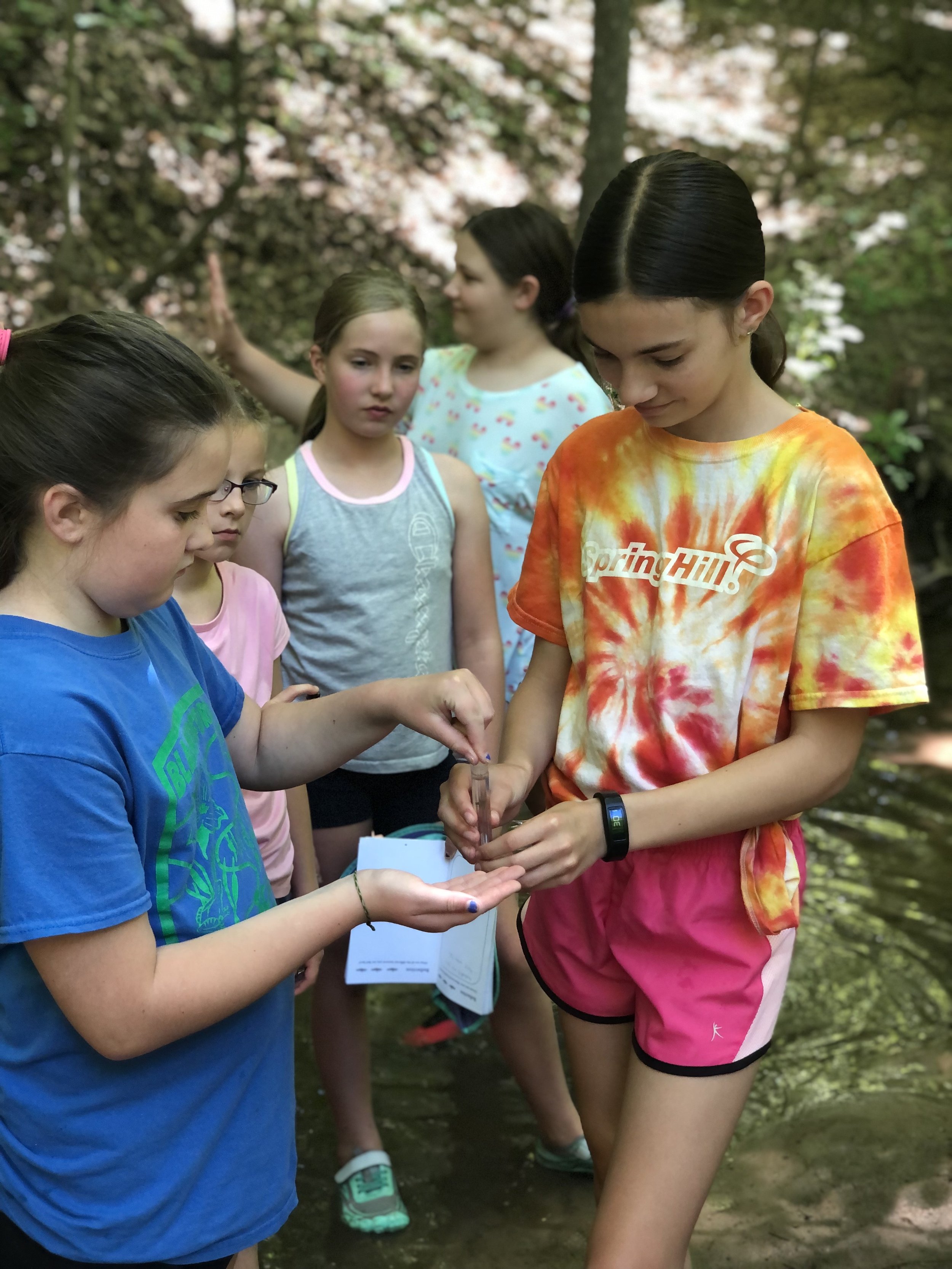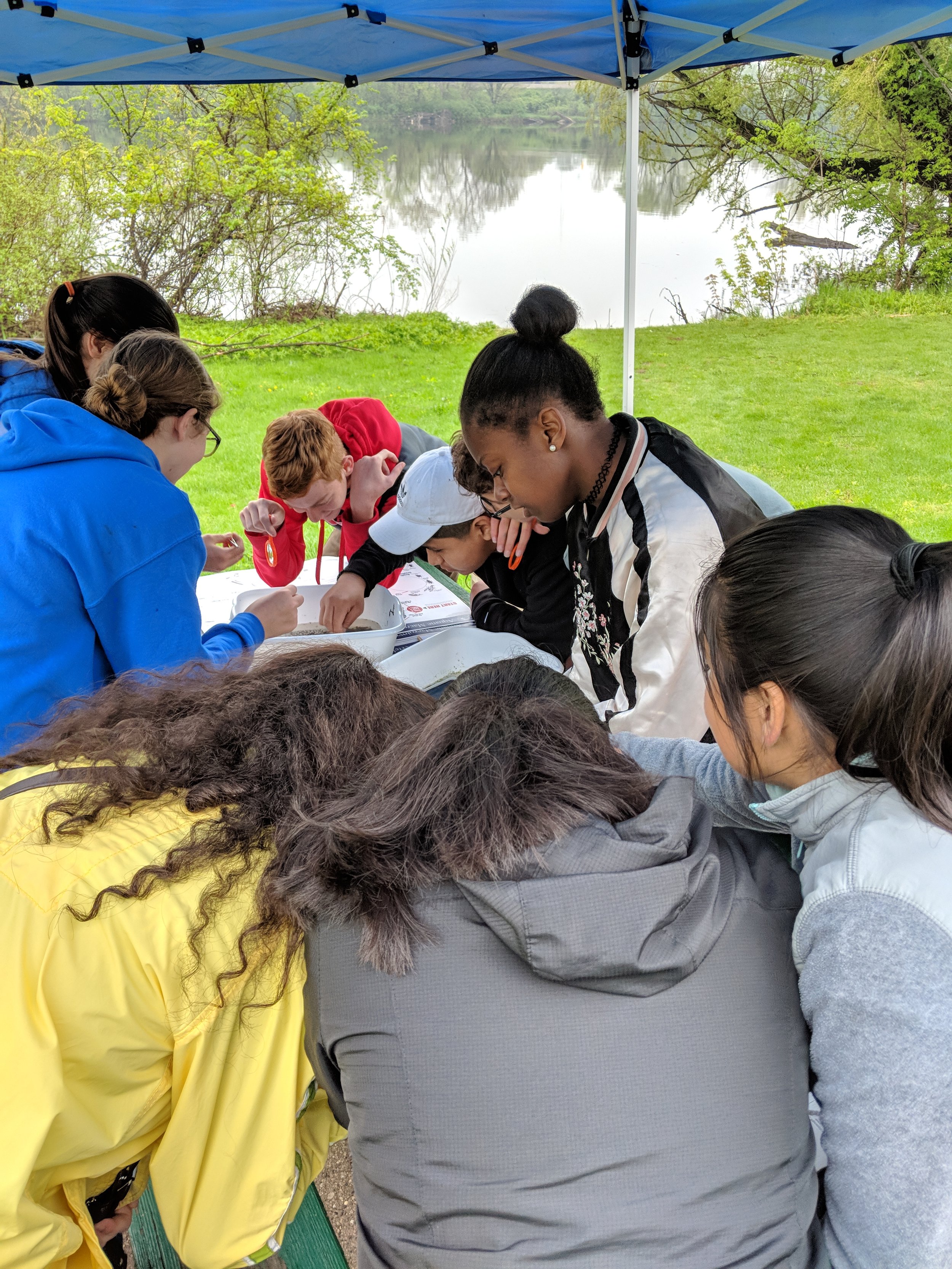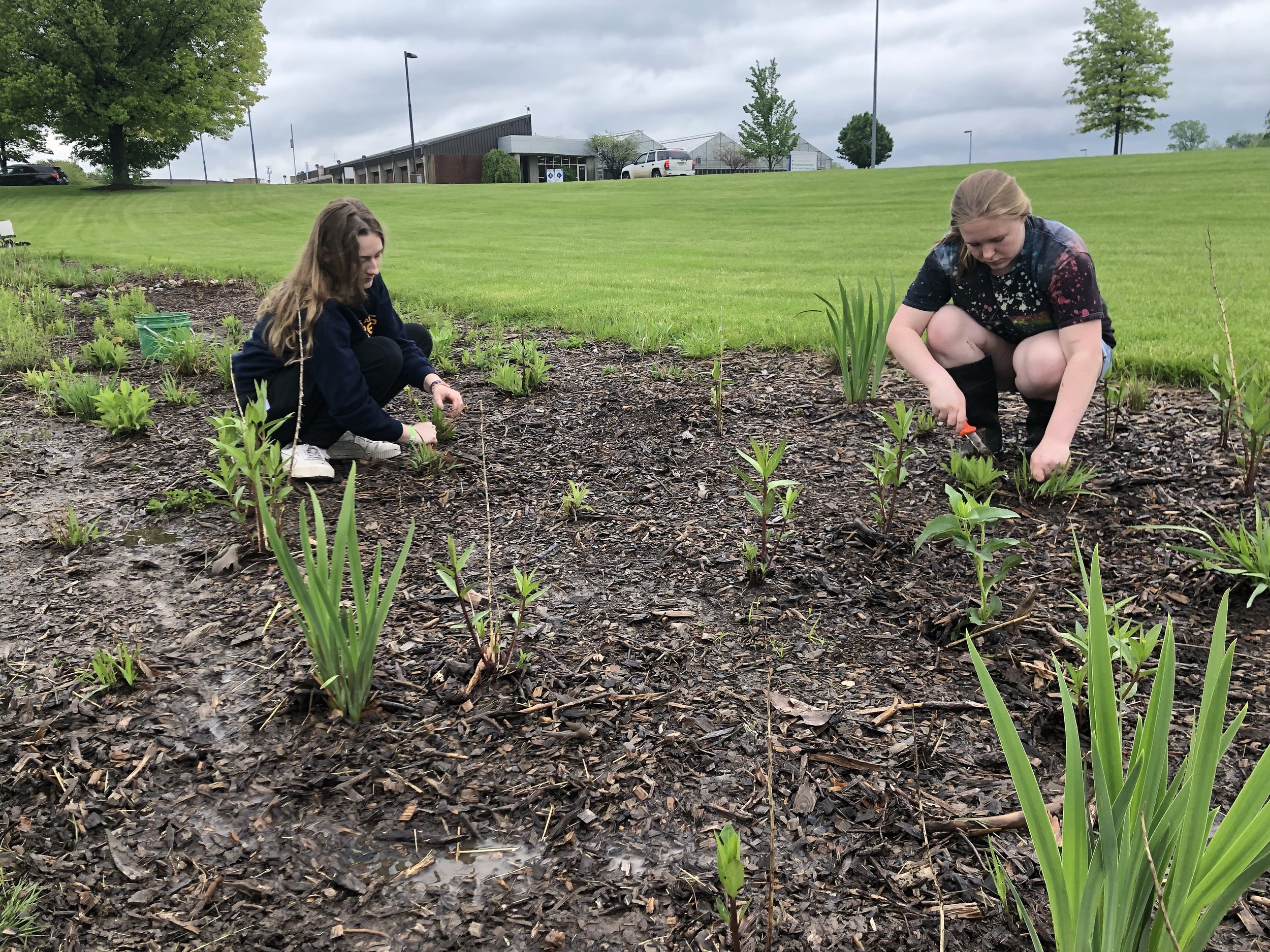Student Experiences
We offer a variety of watershed focused experiences for students of all ages. Students will engage in different opportunities to care for the watershed through hands-on activities aligned with state and national education standards. LGROW can help students identify and solve real-world environmental problems through place-based and project-based partnerships.
Experiences
LGROW can offer in-person and virtual environmental education programs. From on campus activities to field trips, we can provide unique learning experiences for all ages. If the following experiences do not fit your needs, we offer custom programs that cater to your specific classroom needs. Please contact us for pricing arrangements.
Lower Grand River Watershed
General Watershed Lessons
We provide both in-person and virtual lessons focused on entry level and general watershed education. This is the perfect lesson to kickstart a watershed based curriculum. The lesson can be used as a starter for our other programs or stand alone.
Macroinvertebrate Investigation
A hands-on activity for students to study macroinvertebrates in-person. Students will get to sample and learn what it is like for an aquatic biologist to research a stream. This lesson can be used in part with our water quality monitoring program to get a better understand of the stream story.
Water Quality Monitoring
This program gives students first hand experience with chemical data. Our water quality monitoring program can be done once or periodically throughout the school year. This lesson can be used with our macroinvertebrate investigation program to get a better understand of the stream story and overall stream health.
Stormwater Runoff
Green Infrastructure
We offer both in-person and virtual presentations focusing on stormwater best management practices. This is the perfect companion lesson for our general watershed program. The lesson covers the following types of green infrastructure:
Rain Gardens
Rain Barrels
Native Plantings
Bioswales
Non-Point Source Pollutants
Non-point Source (NPS) Pollution - unlike pollution from industrial and sewage treatment plants, non-point source pollution comes from many different sources.
LGROW provides both in-person and virtual presentations focusing on non-point source pollutants. We can provide hands on activities and games for students to learn.
Personal Actions
Storm Drain Marking
LGROW can assist in storm drain marking events on your school campus. We provide a brief presentation either in-person or virtually before the drain marking event. Students can mark their drains to help educate the local community about the importance of protecting our watershed. LGROW has drain cleaning kits to borrow. Please fill out the contact sheet on the right side of the page for more information regarding these kits.
Stream Cleanups
We provide hands on stream cleaning assistance. LGROW can help you organize a stream cleanup either on campus or at a local water way. LGROW has stream cleaning kits for you to borrow. Please fill out the contact sheet on the right side of the page for more information regarding these kits.
Riparian/Wetlands Management
Natural Shoreline
LGROW provides both in-person and virtual presentations focusing on riparian and wetland management. We can provide hands-on activities for students to learn about natural shorelines and wetlands. This program can be taken in the field with students throughout any season.
Sustainable Agriculture
Best Management Practices
We offer onsite in-person visits to discuss sustainable agriculture practices. Participants will learn about Best Management Practices (BMPs) and how they help us protect our watershed.
Contact Us Below for More Information
Please fill out the following form if you are interested in a LGROW outreach experience or drain/stream cleanup kit.
Lower Grand River Curriculum Resources
Several full units have been developed by Groundswell and other community partners to help you teach students about the Lower Grand River Watershed, the Grand River Restoration Project, and Water Quality Monitoring.
Lower Grand River Watershed Lesson Plans (Grades 6-8)
“River Rewilding” Lessons on the Grand River Restoration and River Revitalization (Grades 6-12)
Rapids Restoration and River Revitalization Project Overview Lesson
Social and Economic Impacts of the River Revitalization Lesson
Advanced Water Quality Monitoring Lesson
Check out this lesson for links to macroinvertebrate identification materials and data analysis spreadsheets that are useful for beginners as well as advanced stream samplers!
EPA Model My Watershed
Model My Watershed is a tool for watershed modeling. Students can analyze real land use/soil data, model stormwater runoff and compare runoff scenarios based on conservation/development.
Model My Watershed Runoff Simulator is a stormwater simulator that allow students to compare the difference in land use and soil type during rain events.
Stream Monitoring Resources
We’d love for your students to get involved in volunteer stream monitoring. Contact us if you want help getting started. We recommend you follow the guidelines set out by the Michigan Clean Water Corps (MiCorps) volunteer stream monitoring program. Below are the resources you’ll need to get started.
MiCorps Macroinvertebrate Data Sheet
A spreadsheet to help you calculate your stream’s water quality score accurately is available in the Advanced Water Quality Monitoring Lesson linked above.
Waste Management for Water Quality Protection
Household Hazardous Waste
LGROW provides in-person and virtual presentation focusing on green alternatives to household products that generate hazardous waste. We can provide hands-on activities for students to learn. For groups of 10 or more, ages 12+, we can offer a Green Cleaning Class.
